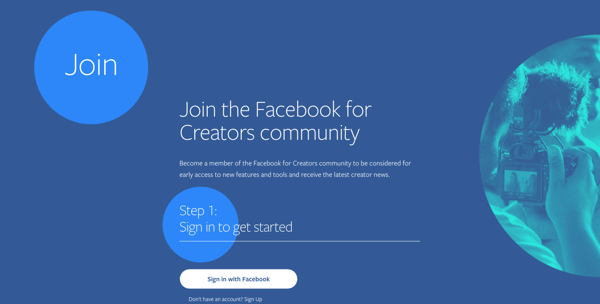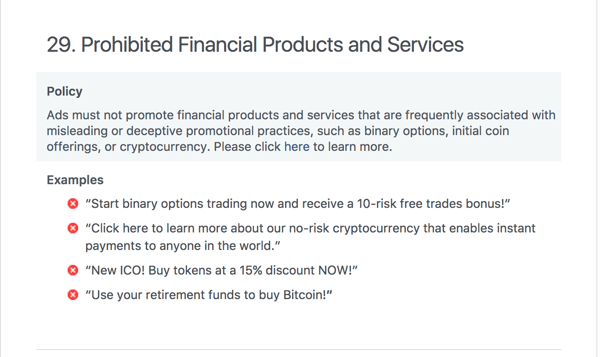Welcome one, welcome all to Wednesday: the day that marks not just the week's halfway point, but another edition of "Unriddled": the HubSpot Marketing Blog's mid-week digest of the tech news you need to know.
This week, we're slowly emerging from our taco-induced food comas to help you figure out just what the heck is happening in the tech world. That Facebook-Cambridge-Analytica drama, for instance? Yeah, we've got you covered.
It's our Wednesday tech news roundup, and we're breaking it down.
Unriddled: The Tech News You Need
1. Cambridge Analytica May Have Taken Advantage of Personal Facebook User Data It Said It Deleted
Last Friday night, Facebook published an official statement saying it had banned Cambridge Analytica: a data analytics firm that creates psychographic models to help clients shape messaging to influence the decisions of consumers and, potentially, voters.
It first came to light in 2015 that the firm had misused personal data that it acquired in accordance with Facebook's policies at the time, by having users download an app that allowed analysts to scrape such behavioral data as Page, comment, and post likes, as well as similar information on each user's friends.
Suspending Cambridge Analytica and SCL Group from Facebook https://t.co/z7wCCqlbcA
— Facebook Newsroom (@fbnewsroom) March 17, 2018
And while that activity didn't violate Facebook's then-policies, the fact that the developer transferred the data to Cambridge Analytica did. While Facebook claims it received certification at the time that Cambridge Analytica destroyed the data, allegations are now circulating that the firm actually used the data to help develop messaging on behalf of the Trump campaign during the 2016 U.S. presidential election.
It's a story that continues to unfold and develop at an impressive rate -- read our full coverage here.
2. Among the Chaos, Facebook Is Also Rolling out a Video Monetization System
It's true: Using Facebook to monetize videos is probably the last thing on most people's minds right now, even the content creators who could stand to benefit from it.
But despite all of the other news circulating around the network, it was announced this week that Facebook will be rolling out a new feature next month that allows followers to send content creators a certain amount of money each month for benefits like exclusive content or special profile badges that indicate they support a given creator.
It's a model that works similarly to Patreon, in which users can sign up to donate a certain amount to an account each month and, in many cases, get exclusive access to special photos and videos in return.

However, instead of allowing users to choose an amount to donate each month, it will work as a subscription that costs $4.99 each month. Facebook says it won't take any portion of the monthly subscription cost.
The rollout seems to align with the purpose behind many content-related decisions Facebook has made in recent years: to keep users and creators on Facebook by sharing native content, rather than external sites. It also comes at a time when, overall, Facebook use is down -- an aggregate drop of about 50 million hours each day.
By encouraging creators to continue using the platform by way of monetization, Facebook appears to be working toward a solution that could draw in new audiences -- for example, users who follow a certain creator or personality on YouTube would, ideally, now also follow and support that same creator on Facebook.
It also comes on the heels of changes from YouTube that make it more difficult for creators to monetize videos: a shift on which Facebook may be attempting to capitalize with this new feature.
3. Wikipedia Wasn't Told of YouTube's Plans to Use Its Information for Conspiracy Videos
During last week's SXSW events, YouTube CEO Susan Wojcicki said the video-sharing platform will be adding topical information to videos about conspiracies, in order to provide additional information around controversial topics.
The source of this information: Wikipedia.
While already facing the issue that Wikipedia is thought by many to be a less-than-reliable source of information (to the point where many academic institutions don't allow students to cite it as a resource), there was another problem: Wojcicki's announcement at SXSW was the first Wikipedia heard of it.
The problem with that, explained Wikimedia Foundation Executive Director Katherine Maher, "the community’s work is already monetized without the commensurate or in-kind support that is critical to our sustainability."
For example, major search engines index our results. That’s wonderful, but we require people to edit us to stay up-to-date. Scraping our content means people can’t contribute.
— Katherine Maher (@krmaher) March 14, 2018
The organization also issued a formal statement on the issue, pointing out that it was "not given advance notice of this announcement," while also noting that volunteer contributors compose and edit Wikipedia entries without oversight, often leaving them subject to misinformation. The use of such information to clarify content around conspiracies, for that reason, is particularly risky.
There's been little additional information or comment on the development since then, but we'll be keeping an eye on how it progresses.
4. Twitter Might Ban Cryptocurrency Ads Soon
Over the past few weeks, Facebook and Google have both announced that they will be banning any ads pertaining to cryptocurrency on their respective sites. Facebook was the first to do so, by changing its advertising policies to disallow promoted content around "binary options, initial coin offerings and cryptocurrency" -- largely in an effort to help curb scams.

A number of social networks still have not enforced similar bans, including Snapchat and Twitter, though some expect the latter to follow suit soon.
According to Sky News, the new rules will roll out within the next two weeks, and will likely ban "advertisements for initial coin offerings (ICOs), token sales, and cryptocurrency wallets globally."
In January, Twitter announced that it would be working to curb finance-related ads that were designed to mislead or deceive users about certain promotions.
5. After Fatal Events, Uber Has Indefinitely Paused the Testing of Autonomous Vehicles
Earlier this week, a woman in Tempe, Arizona was struck and killed by one of Uber's self-driving cars. At the time of the incident, the vehicle was in its "autonomous mode," though there was also a human safety operator behind the wheel.
The incident raises concerns about the safety of what's still a relatively emerging technology. Autonomous vehicles are equipped with human operators to override the system when the car doesn't function as it's supposed to. In this case, it wasn't enough to prevent a fatal event.
There are still no details about how this happened, and the investigation is ongoing.
Our hearts go out to the victim’s family. We’re fully cooperating with @TempePolice and local authorities as they investigate this incident.
— Uber Comms (@Uber_Comms) March 19, 2018
It was one of, if not the first incident of a self-driving car hitting a pedestrian -- though it's not the first accident to take place with an autonomous vehicle, nor is it the first for Uber. Last March, also in Tempe, one of Uber's self-driving cars flipped onto its side when another vehicle, driven by a human, failed to yield to it.
What Else Is Going Down in Tech Town?
This Is How You Tell a Story
While "brand activation" may sound like a buzzword that means nothing, once in a while, it works. Here's what we learned from three brands at SXSW -- about experiential marketing and storytelling alike. Read full story >>
Is Google Home Psychic?
Probably not -- but it does have a weird, yet fun app that can guess which fictional character you're thinking of. Here's what happened when we tried it. Read full story >>
A Brief Guide to #Winning at Social Media
In a world rife with the fake news effect and distrust, it's hard to stand out on social media, especially in a way that stands out or truly helps your audience. In these troubled times, here's what three experts at SXSW say you should do. Read full story >>
That’s all for today. Until next week, feel free to weigh in on Twitter to ask us your tech news questions, or to let us know what kind of events and topics you'd like us to cover.
from Marketing http://ift.tt/2IFhXQ3
via
No comments:
Post a Comment